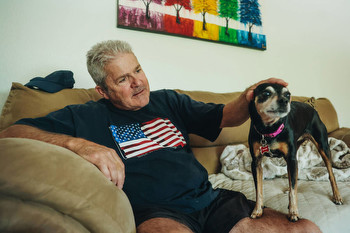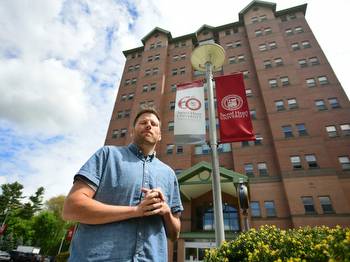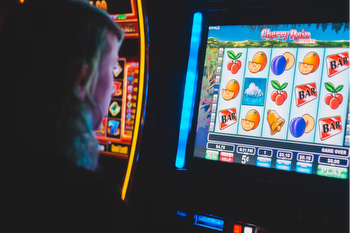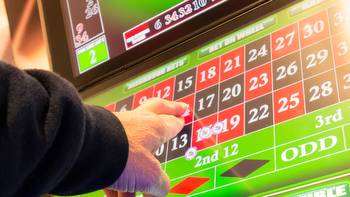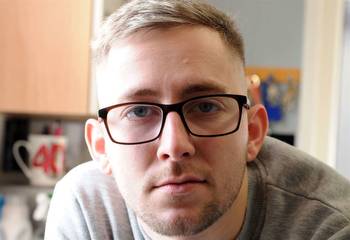World cup footie a 'perfect storm' for gambling addicts
World cup footie a ‘perfect storm’ for gambling addicts
World cup footie a ‘perfect storm’ for gambling addicts: Huge rise in ‘day trading’ combined with the cost of living crisis and World Cup is a ‘perfect storm’ for gambling addicts, says Priory gambling expert
“In the last few months I have talked to a person who gambled away their redundancy money, and another who lost about £200,000,” says Lee Rolleston, a psychotherapist at the Priory’s Hospital in Chelmsford.
“The volatility in the markets can cause huge problems for people addicted to day trading – and online casinos and the World Cup, coupled with the cost of living crisis, is a toxic combination for some.”
Lee, who specialises in treating gambling addicts – and often tries to route them to GamStop (so they can self-exclude from all UK-regulated gambling sites) – says he fears those prone to gambling addiction are really struggling in the current climate. And he talks from experience: “When I was gambling, if I had a bad run I didn’t want to stop. I wanted to win it back. Same with day trading. Some people can gamble and trade safely because they stick to their boundaries. They don’t attach emotions to it. If you attach emotions to it, that’s the problem.”
In his former role as a day trader for mainstream banks, including Deutsche Bank, in the 1990s and 2000s, Lee said addiction to trading was common but kept under control by bosses.
When people trade with their own money, and often very large sums of it, it can become much more emotional and impulsive.
“A lot of people are day trading,” he says.
High levels of stress and anxiety, and working from home hasn’t helped. Some are day trading for hours on their laptops – or accessing trading platforms from smartphones, where they can buy and sell shares, derivatives and cryptocurrencies 24/7 on apps. Some 1.8 million adults in the UK started day trading on online platforms during the pandemic, according to research firm Consumer Intelligence.
“People with a lack of experience are going to get slaughtered,” says Lee. “Some see the volatility as an opportunity to make money and don’t see the downside. They might have a couple of days of making money and think ‘I am going to up the ante and risk more money’ and that is the day they lose. Then they get into the situation where they think they are needing to make more – and they start chasing the money. I had a patient who was in full-blown gambling addiction. They worked for a financial company and pretty much their month’s money was gone in the first two days. Another would try and gamble his way out of his addictions, including drug addiction, and lost about £200k.
“If you have that propensity, and see living costs going up, you’ll think ‘I will just gamble a bit more’ to make some money. And there will be a flurry of bets of course with the World Cup on.”
This is where DBT comes in. DBT (dialectical behaviour therapy), a treatment originally developed for individuals with borderline personality disorder, has been shown to be effective for the treatment of gambling because it provides individuals with skills that help them tolerate distress, improve emotional regulation, and cultivate mindfulness. If CBT (cognitive behavioural therapy) can be summed up as thinking your way into a new way of behaving, DBT is about behaving in a way which will change your thinking.
“The DBT work we do works well for gambling addicts because they can see whether they attach emotions to what they are doing,” says Lee. “Some have lost hundreds of thousands of pounds.
“A lot of gamblers start winning and think it is going to be easy and they risk more and more. In poker, where the better player wins, sometimes the losing player just can’t handle it and constantly wants to prove themselves to be the better player. It’s mostly men I see but more and more women are beginning to suffer. They are gambling recovery groups online, sometimes just for women, as well as Gamblers Anonymous.
“In this difficult economic climate, there are these massive tournaments – it is super toxic – and with Christmas coming up and money being even tighter, some people think that winning money is the easy or only solution. They think ‘if I can gamble a little bit better, I can win more’, and sometimes it works but most often it doesn’t.”
Priory has seen a 41% rise in people inquiring about private treatment for gambling addiction, comparing similar periods for 2021 and 2022.
“My advice to gamblers is simple: just don’t do it,” says Lee. “I ask patients ‘how successful has your gambling been in past? Have you ever gambled emotionally to change the way you feel? Can you just feel pleased that your team is winning in the World Cup rather than putting a bet on them?
“Gambling is not gender specific and one of the addictive behaviours more likely to lead to suicide. Gamblers can normally hide their addiction from others for longer than substance misusers, as the physical effects are often absent. Yet when the horrors of their addiction are discovered, it is often too late and homes, careers and even lives are lost.”
Priory is the leading independent provider of behavioural care in the UK.
Latest posts by Priory Group (see all)








